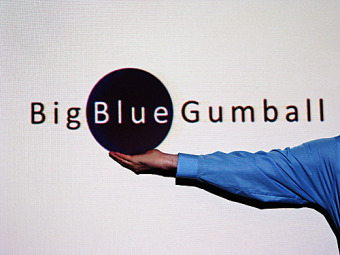 Todd Cherches | Comments Off |
Todd Cherches | Comments Off | Entries in Interviewing (8)
When is Thinking Slow Better Than Thinking Fast?
 Monday, April 20, 2015 at 12:07AM
Monday, April 20, 2015 at 12:07AM 
So, you have a job interview or a big meeting coming up with the boss or an important client. You’ve done your homework and you’re prepared, primed, and pumped up. But have you thought about your thinking speed?
We all know that Interviews and high-stakes meetings can be stressful, and when nerves flare up, our tendency is to think and talk too fast, leading to our blowing that meeting that we prepared so hard for.
In his now classic book “Thinking, Fast and Slow,” Daniel Kahneman takes a deep dive into how we think – and teaches us how we can think more effectively. According to Kahneman, one of the biggest problems is that we tend to think too fast.
To read the rest of the article and learn more about how thinking SLOW can sometimes be the way to go, click here.
 Todd Cherches | Comments Off |
Todd Cherches | Comments Off | 10 Things To Do After an Interview to Help You Get the Job (Todd quoted in Forbes)
 Wednesday, July 30, 2014 at 8:05PM
Wednesday, July 30, 2014 at 8:05PM 
The main purpose of following up after a job interview (other than the obvious thanking of the person for their time and attention -- which is, simply, the polite and courteous thing to do) is to reinforce that you are the right person for the job – in terms of both attitude and aptitude.
I provided three suggestions, one of which made it into the article:
Tip: Provide a follow-up response to one of the key interview questions. Ever draw a blank or give a less than stellar response during a job interview? Use your post-interview thank you note to modify, correct or amplify one of your responses.
Todd Cherches , CEO of BigBlueGumball, a New York City-based management consulting and coaching firm, offers this example:
When you asked me about my single greatest accomplishment in my last job, I apologize that I drew a blank. However, immediately after leaving, it hit me that I should have mentioned...I was voted the top salesperson in my department for 2013, and proudly received a special recognition award at my company’s year-end national convention. This gives you a chance to re-connect with the interviewer, re-confirm your interest in the position, and demonstrate your self-awareness (while, at the same time, showing resilience after bouncing back from that brain-freeze!).
Two of my other suggestions -- that didn't make it into the column -- were:
*Along with the “thank you” email, include a relevant article, link, or book recommendation that relates to a topic you were discussing. For example, “In our interview, you mentioned that one of the biggest challenges of this position will be supervising a staff of recent college graduates, so I thought you might find the attached article on ‘Managing Millennials’ interesting.”
*Provide a (non-confidential, of course) work sample that illustrates your ability to do the job. “As one of the primary responsibilities of this position would be to put together PowerPoint decks for the sales staff, attached is a sample of one of my recent presentations just to give you a sense of my design abilities.”
Click here to read the full article with tips from a variety of industry experts.
 Todd Cherches | Comments Off |
Todd Cherches | Comments Off |  Careers,
Careers,  Forbes,
Forbes,  Interviewing,
Interviewing,  Todd Cherches
Todd Cherches The Little Pink Spoon Approach to Job Hunting
 Tuesday, July 17, 2012 at 6:57PM
Tuesday, July 17, 2012 at 6:57PM It’s all about the Little Pink Spoon.
One of my all-time favorite summertime pleasures is going to Baskin-Robbins and trying out a few new flavors with those little pink spoons of theirs. Ninety percent of the time I just end up getting Rocky Road, but I always enjoy tasting a few other flavors before ordering my cone.
Why is Baskin-Robbins so willing to give away their product for free? It’s obvious: they hope that by giving us a free taste, we’ll end up buying a cup or a cone or a pint or a gallon. So they gladly give away millions of little pink spoonfuls in order to make many millions of dollars more in return. It’s the same reason movies show trailers, cosmetics companies offer samples, and car dealers offer test drives: people want to try before they buy.
So, how do you bring the Little Pink Spoon Principle into play in your job search? By giving a prospective employer a “free sample” of what you have to offer, you’ll dramatically improve your chances of success. Here are three ways to do it …
[Click HERE to read the rest of the post on the Hired Guns site]
 Todd Cherches | Comments Off |
Todd Cherches | Comments Off |  Baskin-Robbins,
Baskin-Robbins,  Careers,
Careers,  Influencing,
Influencing,  Interviewing,
Interviewing,  Job Hunting,
Job Hunting,  Management,
Management,  Pink Spoon,
Pink Spoon,  hired guns in
hired guns in  Careers,
Careers,  Influencing,
Influencing,  Job Search,
Job Search,  Management
Management 
